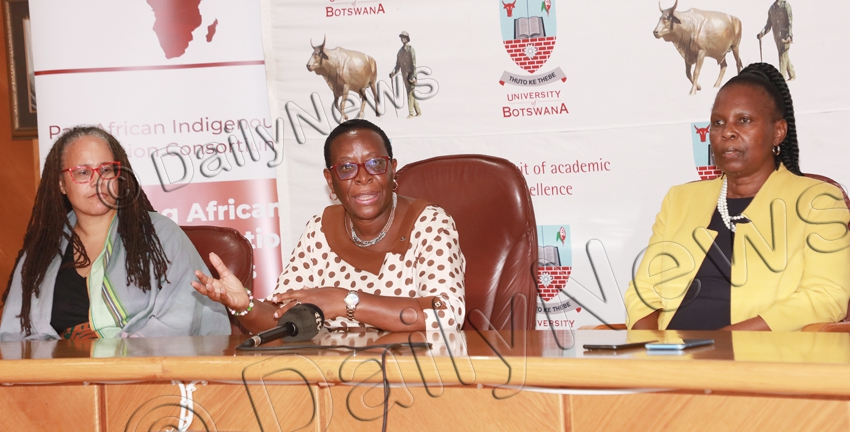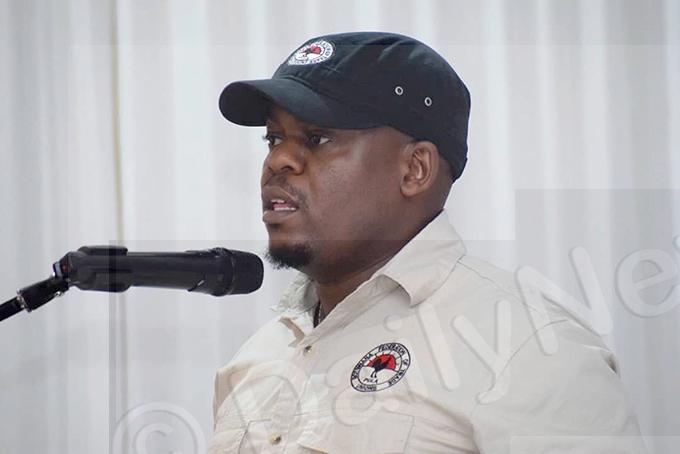Study on indigenous evaluation starts May 16
15 May 2024
The Mastercard Foundation has funded members of the Pan-African Evaluation (PAE) Consortium with P10 million to conduct a research project that seeks to map and co-create evaluation methodologies, approaches, frameworks and tools that are embedded in African cultures, histories, experiences and philosophies.
Giving an overview of the project during a press conference in Gaborone May 14, University of Botswana’s (UB) Research and Evaluation specialist, Professor Bagele Chilisa said the one year study was also aimed at mapping trends in Indigenous Evaluation (IE) and co-creating and testing, with communities, innovative methods, tools and frameworks, which were culturally sensitive and responsive.
“Development is always accompanied by many projects and usually there has to be some evaluation of some sort.
For every project that is funded, the funder will seek that there is some evaluation. But, we hear about so many projects that on the reports are very successful, but when you visit the site where the project is supposed to have taken place, there is no sign of success and sometimes the project is not even there,” she said.
To address power asymmetries and elevate the voices of marginalised young women and men and communities, Prof. Chilisa said the one year study called for scholars in Africa, and elsewhere, to think about the way evaluation was conducted and whose methodologies, evaluation framework and tools should be used, for the success of projects to be visible.
“We will explore how indigenous evaluation approaches empower marginalised communities, and communities in general, to amplify their voices by exploring and analysing successful examples of indigenous evaluation in Africa,” she added.
The outcome of the one year project that is scheduled to be launched on today, Prof. Chilisa said was evaluation frameworks, approaches and methods that were driven by African philosophies, indigenous worldviews and paradigms.
This, she said would also help to challenge traditional power dynamics, colonial evaluation practices and promote more inclusive and equitable evaluation practices that policymakers, practitioners and funders could apply to their work.
Additionally, Prof. Chilisa, who is also the study’s principal investigator, said the enquiry was intended for monitoring and evaluation coordinators or officers, evaluators, project implementers, researchers, evaluation commissioners, funders, evaluation thought leaders and anyone that had an experience to share on the topic.
The MasterCard Foundation, she said funded the research, which is being conducted through a collaboration of members who are part of the Pan African Indigenous Evaluation Consortium, amongst them being; the African Evaluation Association (AfrEA).
Prof. Chilisa said the outcome of the project was frameworks and tools that were localised and depicted the values, philosophies and cultures of the African people.
Therefore, through this one year study, she said the consortium would find out about the history, philosophies and culture that informed evaluation in Africa, how evaluation was done in the past and multiple indigenous evaluation.
“We are trying to find out these ways, so that we can co-create with communities, ways of doing evaluation that are compatible with the culture of the people, talking about success and evaluation that resonated with the communities and doing evaluation that helped the communities where the programmes and projects took place,” Prof. Chilisa added.
The study, she said would be done throughout Africa, adding that they had already started literature review to try and see who the thinkers were and whether there were some African thinkers that were also originating some new frameworks embedded in African cultures, philosophies, histories and experiences.
“Our project is meant to say communities should have a voice, if these are government funded projects, governments should also have a voice.
We should not only hear voices of funders who bring money, but they should know that they are bringing money to people who in the end are supposed to gain and the projects are supposed to improve the quality of life of the people. So, in this project, we need partnership with communities and governments,” added Prof. Chilisa. ENDS
Source : BOPA
Author : Lorato Gaofise
Location : GABORONE
Event : Press Conference
Date : 15 May 2024






